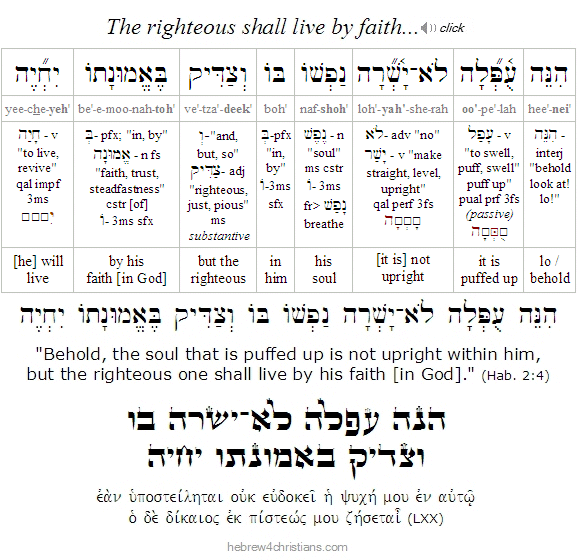|
THE TALMUD (Makkot 23b-24a) says, "Moses gave Israel 613 commandments, David reduced them to eleven (Psalm 15), Isaiah to six (Isaiah 33:15-16), Micah to three (Micah 6:8), Isaiah reduced them again to two (Isaiah 56:1); but it was Habakkuk who gave the one essential commandment: v'tzaddik be'emunato yich'yeh, literally, "the righteous, by his faithfulness - shall live." In the New Testament, the apostle Paul had (earlier) distilled the various commandments of the Torah to this same principle of faith (see Romans 1:17, Galatians 3:11, and Hebrews 10:38).
This small phrase, consisting of only three Hebrew words, is perhaps the pivotal axis upon which our salvation turns, since it distills the requirement that we are justified by our faith in God, and not by "works of righteousness which we have done" (Titus 3:5).
The Hebrew word translated as "faith" (emunah, derived from the Hebrew root 'aman, meaning to nourish, to make firm and strong), is perhaps better translated as "faithfulness" or "loyalty," rather than "belief" in something (i.e., intellectual assent). Emunah suggests perseverance, fidelity, and steadfastness -- notwithstanding appearances or circumstances that might tempt us to waver or hesitate in our commitment.
|



